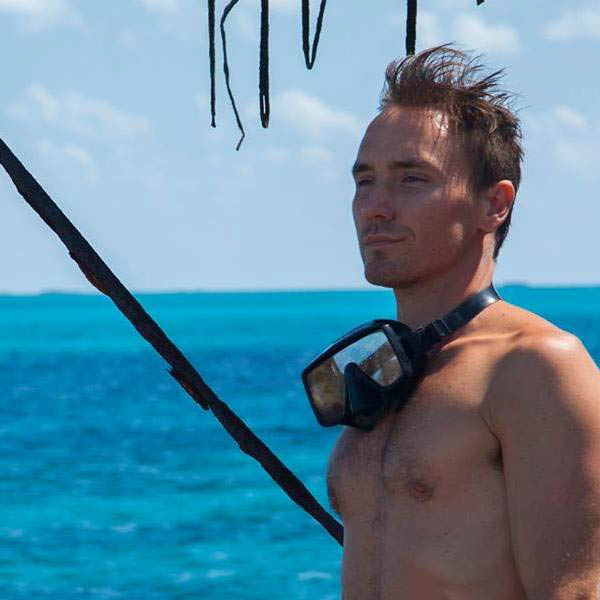
Canadian diver Rob Stewart’s death in the ocean is a big blow to his family, the environmental movement and the educational impact of his marine filmmaking. Stewart died in a tragic diving accident near Key Largo, Florida on January 31. He was there to start working on his third movie. It was to be called Sharkwater: Extinction, a sequel to his acclaimed first movie known as Sharkwater.
One of his subjects was the elusive “sawfish,” which has a shark’s body and a beak that looks like a chainsaw. The sawfish is skittish and easily scared by a diver’s bubbles. Instead of using conventional tanks, Stewart and his dive partner were using rebreathers, which recycle exhaled carbon dioxide into air that can be breathed. This process does not cause bubbles.
It has been reported that Stewart had been recently certified for rebreathers by Peter Sotis, a Florida scuba instructor. Sotis was his dive partner on the fatal dive. It is believed the two men made three dives that day, each about 225 feet. Some technical divers questioned why Stewart and Sotis attempted in one day three deep dives with a greater risk of decompression sickness. Most experienced rebreather divers would only attempt two such dives at most, they said.
When the two divers resurfaced after their last dive, Sotis was in difficulty and needed assistance from the boat crew. Stewart indicated he was okay. But by the time they finished with Sotis, Stewart had disappeared. His body was found a few days later, not far from where he disappeared.
Stewart, 37, became a scuba instructor at an early age and immersed himself in defending wildlife on the sea. After high school, he went on to earn a bachelor’s degree in biology at the University of Western Ontario in London, Canada.
The loss of Stewart is huge, especially to his family but also to Canadian environmentalists and the film industry. His first film, Sharkwater, won more than 40 international awards, while his second movie, Revolution, won 19. Sharkwater, released in 2006, argues that sharks are misunderstood. It makes the point that sharks are fundamentally nonviolent. The film also says 90 per cent of the shark population has been killed by indiscriminate hunting.
Stewart teamed up with Paul Watson, who became his mentor on environmental issues. Watson was the founder of Sea Shepherd, a high-seas defender of sharks and a force against illegal fishing anywhere in the world.
In 2002 Stewart came onboard Sea Shepherd’s Ocean Warrior to film Watson combat Costa Rican shark poachers. Watson turned water cannons on the poachers, struck their boat and attempted to take it over. The Ocean Warrior crew was arrested for attempted murder by Costa Rica. They not only got away but recorded incriminating evidence of international shark finning.
Stewart’s Sharkwater documentary explains how the ocean’s top predator plays a pivotal role in stabilizing the climate by eating species that eat plankton. This transforms carbon dioxide into oxygen. It probes the importance of sharks to the ecosystems and the mass destruction of the species around the world.
The world can ill afford to lose an environmentalist and communicator of the stature of Rob Stewart. Despite the fact 97 per cent of climate scientists back research on climate change, there are still deniers. This occurs, even though experts’ prediction of increased frequency of droughts, floods, severe storms and dramatic warming of the Arctic, have already come true.
“This century we’re facing some pretty catastrophic consequences of our actions,” Stewart said in a 2012 interview with The Canadian Press. “We’re facing a world by 2050 that has no fish, no reefs, no rainforest, and nine billion people on a planet that already can’t sustain seven billion people. So it’s going to be a really dramatic century unless we do something about it.”






